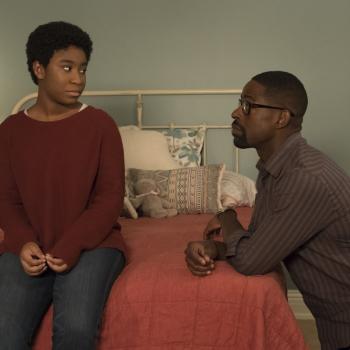My brother mentioned something to me a few weeks ago that I find compelling, a bit scary, and fascinating. He was telling me that memory is a lot more like a filing system than something concrete and unchanging. When we ‘remember’ something, we essentially take the file out of its folder and file cabinet, open it up, and read it. But, when we read it, we also change it – we can erase emotional data (extinction), or add extra data (consolidation). There seem to be times when our files are more prone to being altered – when we are reading with a pencil, eraser and whiteout in hand. Neuroscience confirms that there are different chemical pathways triggered when a memory is being altered. And then – we put it away again, and the resulting revision seems as relevant and real to us as the original memory.
Apparently, the older a memory is, the more firm it is, the harder it is to erase any of it. But of course, by the time you’ve grown up, you’ve revisited and consolidated your childhood memories over and over again, refining them, adding levels of emotion and meaning. Which helps understand why siblings who grew up together can have passionate disagreements about the things that happened when they were children. Ironically, those who have revisited the memory most often – talked it over, written about it, mused on it, etc – are both more likely to be confident of their version of events, and more likely to have almost completely altered details through this process of revision. I wonder how often it is that someone who is more confident but less accurate manages to prevail in conversation and actually force a revision in other’s memories?
This is all fascinating to me because I have never had a good memory for my own past, and have consequently rarely felt able to trust my own memories. My memories aren’t visual or narrative, they are clusters of impressions and emotions – the very things that neuroscience seems to show are most easily altered. How I feel about a person, a situation, my hopes, my fears…those things color all of my memories. I have always felt that my memories were unreliable in detail, but I had tended to trust the impressions they left on me – because how else can I live? I feel unrooted from my own past already, and to have it confirmed that memory is not reliable leaves me unsure how to remedy that feeling of disconnection from my own life.
What relevance does all this have? Well, there’s something scary about the thought that we can’t rely on our own recollections. Eyewitness accounts are notoriously unreliable and easy to influence. As I try to make sense of my life, I am acutely aware that not only may I not accurately remember what has happened in the past, I may actually make my memories more unreliable, less in accord with reality, by trying too hard to reconstruct and make sense of them. We want to think that we can shed light on the past by adding some new piece of information that will make all the pieces fit together. But during a moment of trauma, it is just as likely that we will wind up rewriting our personal history to fit a new preconception, to tell a better story.
More scary – the same is true of everyone else. The same is true of you, and your neighbors, and your family, and your friends. We are all subject to the variability of our own memory, and the more confident we are of our recollections and conclusions – the more we revisit them for proof of this or that – the more likely we are to have written our prejudices into the files of our minds.
The hopeful side of it – the potential that we can give ourselves peaceful and beautiful dispositions by dwelling on ‘whatever is true, whatever is noble, whatever is right, whatever is pure, whatever is lovely, whatever is admirable–if anything is excellent or praiseworthy–think about such things.’















